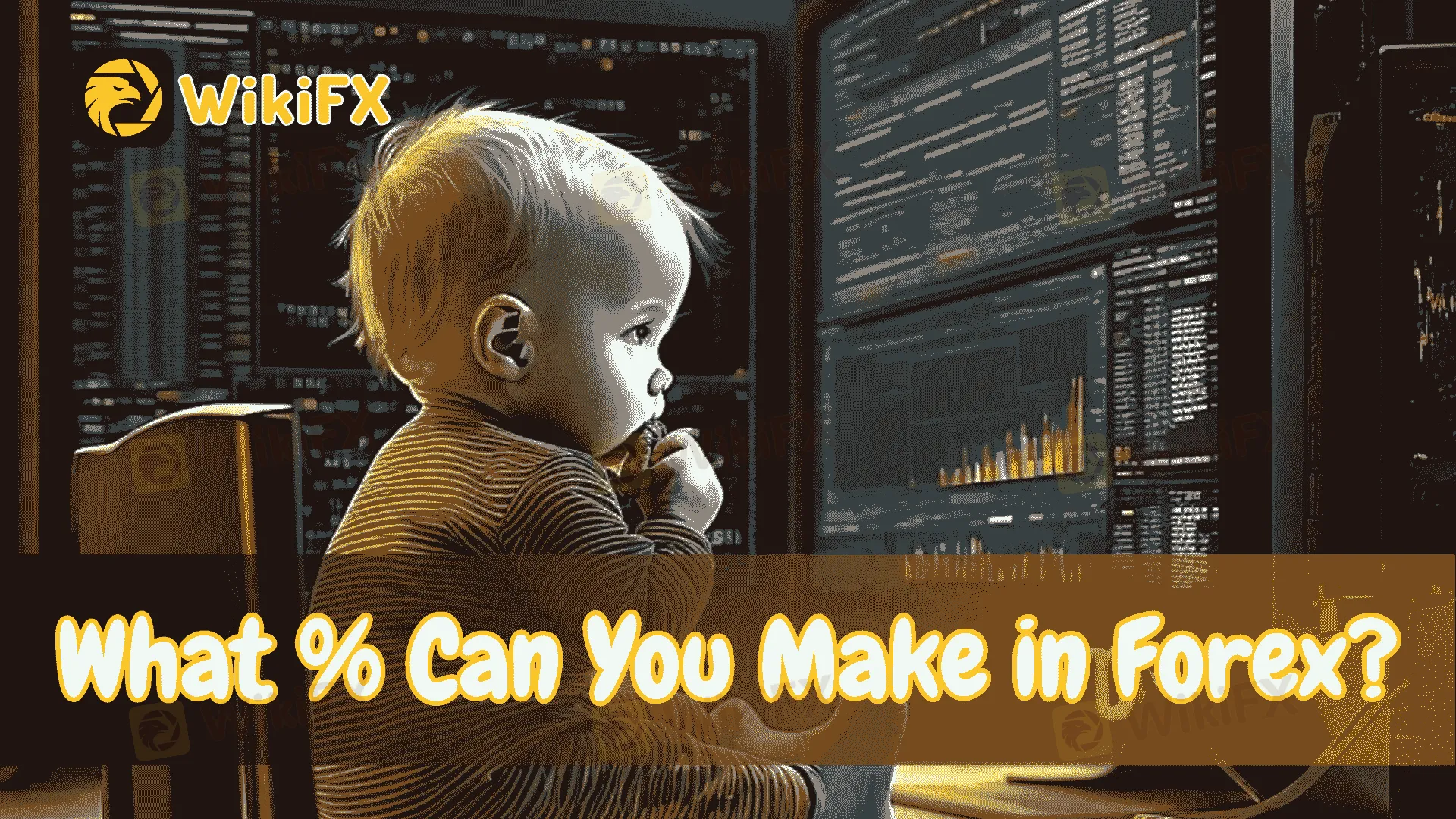简体中文
繁體中文
English
Pусский
日本語
ภาษาไทย
Tiếng Việt
Bahasa Indonesia
Español
हिन्दी
Filippiiniläinen
Français
Deutsch
Português
Türkçe
한국어
العربية
What % Can You Make in Forex?
Abstract:Powered by WikiFX

There are a lot of new traders who are curious about how profitable forex can be, specifically in terms of what their earnings could be as a percentage of the amount they invest.
Newbie traders are quick to rush to calculate their potential profits because they are enticed by the promises of rapidly becoming wealthy and achieving the coveted “financial independence.”
Any response would be honest to the question that was asked, of course. When trading foreign currencies, you can realize a profit that is as high as thousands or even millions of percent in a very short amount of time. On the other hand, you run the risk of losing everything just as quickly. The second scenario is, unfortunately, the one that is most likely to occur.
It is dependent on your risk, which is not only the truth but also a more informative answer. If you are going to risk the entirety of your account on each trade and you are going for a high risk-to-reward ratio, then the potential gains you could make are enormous, but so is the potential loss you could incur.
If, on the other hand, you are only going to risk one percent of your total balance on each trade, it will be much more difficult to make hundreds of percent of profit. On the other hand, there is less of a chance that one will go bankrupt.
Even though experienced traders may roll their eyes when they hear the question, it is a good first step to better understand the concepts of risk and reward, as well as the probabilities involved in Forex, to ask yourself what percentage you can make in trading is a good first step to better understand these concepts.
Disclaimer:
The views in this article only represent the author's personal views, and do not constitute investment advice on this platform. This platform does not guarantee the accuracy, completeness and timeliness of the information in the article, and will not be liable for any loss caused by the use of or reliance on the information in the article.
Read more

Doo Financial Expands Regulatory Reach with Offshore Licenses in BVI and Cayman Islands
According to the report, Doo Group, a prominent Singapore-based online brokerage firm, has strengthened its global presence by securing new offshore licenses for its brokerage brand, Doo Financial. The company recently announced that entities under the Doo Financial umbrella have been granted licenses by two key offshore regulatory bodies: the British Virgin Islands Financial Services Commission (BVI FSC) and the Cayman Islands Monetary Authority (CIMA).

The Hidden Checklist: Five Unconventional Steps to Vet Your Broker
Forex broker scams continue to evolve, employing new tactics to appear credible and mislead unsuspecting traders. Identifying these fraudulent schemes requires vigilance and strategies beyond the usual advice. Here are five effective methods to help traders assess the legitimacy of a forex broker and avoid potential pitfalls.

Doo Financial Obtains Licenses in BVI and Cayman Islands
Doo Financial, a subsidiary of Singapore-based Doo Group, has expanded its regulatory footprint by securing new offshore licenses from the British Virgin Islands Financial Services Commission (BVI FSC) and the Cayman Islands Monetary Authority (CIMA).

CFI’s New Initiative Aims to Promote Transparency in Trading
A new programme has been launched by CFI to address the growing need for transparency and awareness in online trading. Named “Trading Transparency+: Empowering Awareness and Clarity in Trading,” the initiative seeks to combat misinformation and equip individuals with resources to evaluate whether trading aligns with their financial goals and circumstances.
WikiFX Broker
Latest News
ASIC Sues Binance Australia Derivatives for Misclassifying Retail Clients
WikiFX Review: Is FxPro Reliable?
Malaysian-Thai Fraud Syndicate Dismantled, Millions in Losses Reported
Trading frauds topped the list of scams in India- Report Reveals
AIMS Broker Review
The Hidden Checklist: Five Unconventional Steps to Vet Your Broker
Russia to Fully Ban Crypto Mining in 10 Regions Starting January 1, 2025
YAMARKETS' Jingle Bells Christmas Offer!
Why is there so much exposure against PrimeX Capital?
Doo Financial Expands Regulatory Reach with Offshore Licenses in BVI and Cayman Islands
Currency Calculator


